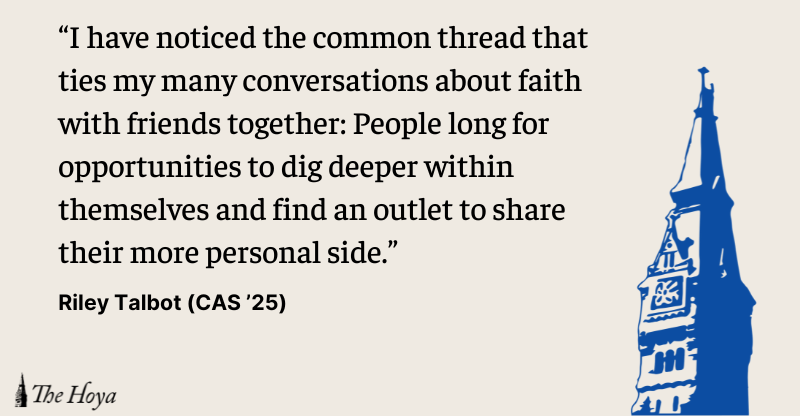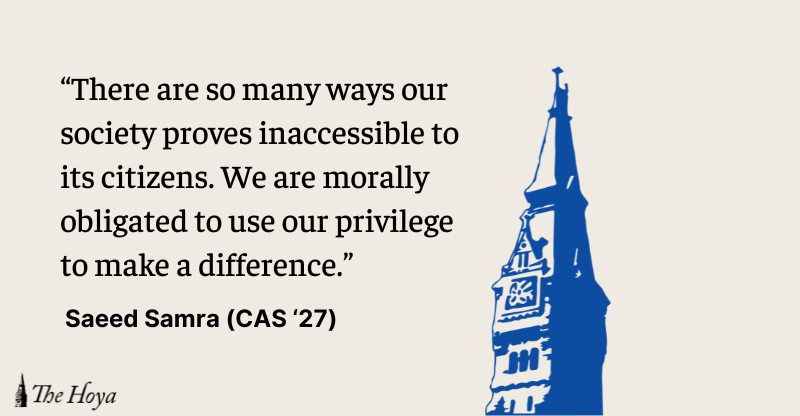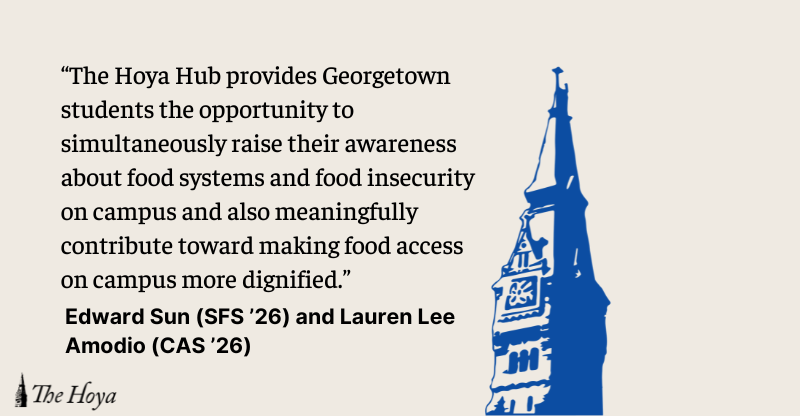At a time when national publications like The Atlantic speak of a “Republican war on college,” it is imperative that graduate workers have a say in their wages, hours and working conditions.
Over the past year, the Georgetown Alliance of Graduate Employees — a group of master’s and doctoral students representing every discipline at Georgetown University — has participated in over a thousand conversations with graduate workers about unionizing to better their living and working conditions.
On Nov. 1, 2017, we announced that a majority of graduate workers supported the creation of a graduate workers union at Georgetown. We have therefore asked the administration to formally recognize GAGE as the exclusive bargaining agent for Georgetown graduate workers.
We believe that the tax bill passed by the House of Representatives earlier this month only reaffirms the need for a graduate workers union to advocate with the administration on our behalf.
The Tax Cuts and Jobs Act represents an attack on U.S. higher education. The version of the bill that passed the House on Nov. 16 would redefine graduate workers’ tuition benefits as taxable income, tax private university endowments and eliminate the Lifetime Learning Tax Credit and the $2,500 tax deduction for student loan payments. The American Council on Education reports that the bill would eliminate $65 billion in benefits for higher education over the next 10 years.
As noted in numerous publications including The Nation, The Washington Post, and The Chronicle of Higher Education, the Tax Cuts and Jobs Act represents a particular threat to graduate workers’ livelihoods.
The bill would have “an apocalyptic impact on graduate student costs,” as our colleague Jewel Lipps (GRD ’22) wrote in an email to The Hoya on Nov. 17. Many graduate workers would have to withdraw from their programs because their tax obligations would increase by as much as 400 percent while their stipend would remain the same.
Higher education is now a favorite target of the right. A recent Pew Research Center poll found that 58 percent of Republican and Republican-leaning respondents think that higher education has a negative impact in the United States.
Former Arizona Republican state legislator Frank Antenori encapsulated the sentiments of a growing anti-intellectual movement in a Nov. 25 piece in The Washington Post: “A lot of Republicans would say they go there to get brainwashed and learn how to become activists and basically go out in the world and cause trouble.”
This hostility toward higher education suggests that even if the Tax Cuts and Jobs Act does not become law, the coming years could present Georgetown with many difficult decisions that affect graduate workers. These decisions could influence not only our wages and hours, but also the shape of our community.
The Department of Education reports that 60 percent of all graduate workers in the United States who benefit from Section 117(d) — the provision of the U.S. tax code responsible for the tax-exempt status of their tuition waivers — work in a STEM, science, technology, engineering or math, field. By negating this provision, the Tax Cuts and Jobs Act could be a setback for long-standing efforts to diversify STEM fields by presenting even more obstacles for students seeking a higher education — especially for those who are already financially strained.
Meanwhile, a lack of diversity remains a pressing issue in STEM fields: A recent report by the National Science Foundation found that black, Hispanic and American Indian or Alaska Native students made up only 13 percent of those who receive doctorates in science or engineering fields.
We urge the administration to formally recognize and begin a good-faith bargaining process with GAGE. In particular, we ask that the administration respond to our recent letter about the Tax Cuts and Jobs Act, which called on the Office of the President to clarify the tax status of graduate students’ tuition benefits and — in the event waived tuition is made taxable — commit to maintaining graduate students’ current level of after-tax income.
Our labor is foundational to Georgetown’s mission as a Catholic and Jesuit university. We assist faculty with their courses and research, design and teach our own courses, present our work at academic conferences, apply for research grants and fellowships that enhance the university’s reputation and participate in charitable efforts that encourage good relations with the community.
After long and careful deliberation, a majority of us have decided that unionization represents the fairest, most effective and most democratic way for graduate workers at Georgetown to communicate with the administration about our interests as workers.
Graduate workers at Georgetown have more than earned a seat at the table when the administration takes up issues that affect our living and working conditions.
Chad Frazier is a doctoral candidate in the history department. Kathryn Sánchez is a doctoral candidate in the biology department. They are writing on behalf of Georgetown Alliance of Graduate Employees.



















